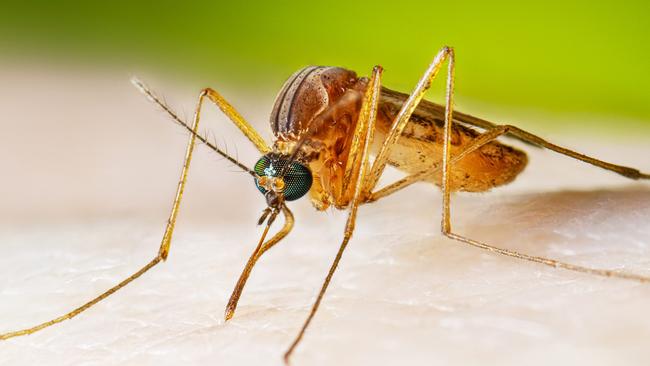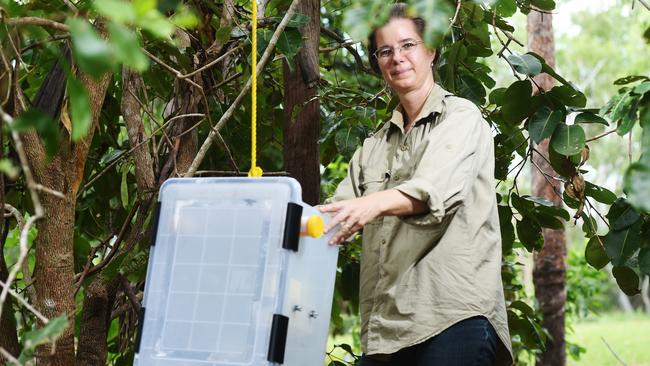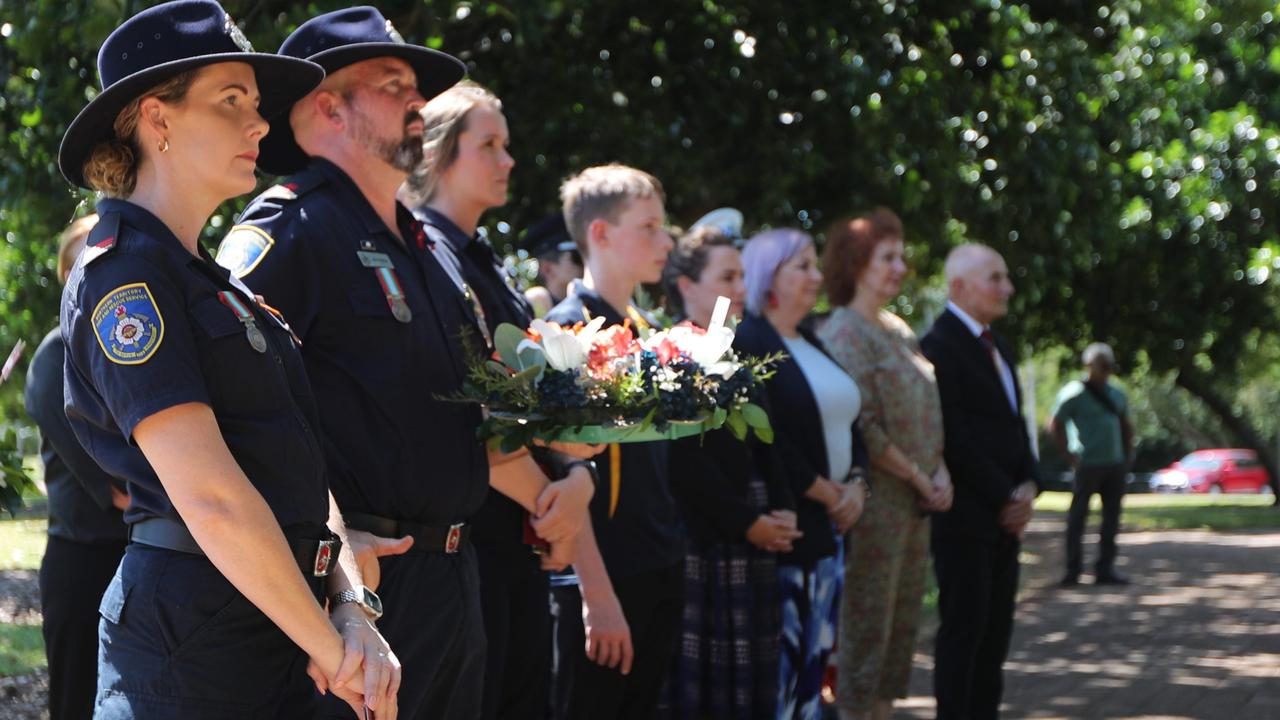Mosquitos out in swarms across Top End as risk of Ross River virus rises
Territorians will have noticed an extra bite from mozzies this Wet season as the numbers across the Top End coast reach an unusual extreme. Find out why.

Northern Territory
Don't miss out on the headlines from Northern Territory. Followed categories will be added to My News.
The mozzies are already out in extreme numbers this Wet season after high tides and heavy rainfall, which has turned the NT coast into the perfect breeding ground.
Mosquitos are known to thrive through the Wet Season because of the wet and humid conditions, but the current peak is an unusual one.
High tides through September and October created the increased area for salt marsh mosquitos to hatch.
They all hatched about the same time, and laid more eggs.
The current peak is expected to last late into next week – according to NT Health – due to the high humidity.
NT Health Medical Entomology Director Nina Kurucz said the day biting salt marsh mosquitos carried a high risk of transmitting the Ross River virus.
The virus is a debilitating disease that can last for months, with symptoms including swollen and painful joints and muscles, a red rash, fever, fatigue and swollen glands.
On average 250 Territorians are diagnosed each year, with 59 cases of the virus detected in 2024.

“They’re a high risk because they live long enough to pick up the virus from a possum or wallaby and then get a second blood meal where they transmit to a human,” Ms Kurucz said.
“This is why people really need to make sure they’re not getting bitten by mosquitos during the high risk period, which is pretty much from now to about March.
“To a certain extent, this happens every year but we just had these really huge tides, up to 8m, and the rain, so that dampened so much area where these eggs could have been laid.
“The mosquitos we have at the moment are aggressive day biters, but they can also bite during the night.

“The rain is causing high tides, which means their areas are now flooded and they can’t lay their eggs on moist mud, meaning their numbers will decrease unless everything dries out.”
Ms Kurucz advised wearing lighter coloured long sleeves and pants of lighter colours, as well as shoes and socks, to avoid being bitten.
She said locals should make sure their bug and security screens were not damaged, and that they were wearing bug repellents contianing DEET, picaridin or extract of lemn eucalyptus (PMD).
There is expected to be a second wave of mozzie numbers once the monsoonal rains start closer to Christmas when the freshwater breeding mosquitos, including the common banded mosquito start breeding.
“Unfortunately these are the ones that are the best at transmitting the Ross River virus and the potentially fatal Murray Valley encephalitis,” Ms Kurucz said.
“The only good thing about those mosquitos is they are mainly active after sundown.”
For more details go to the NT Health website.




